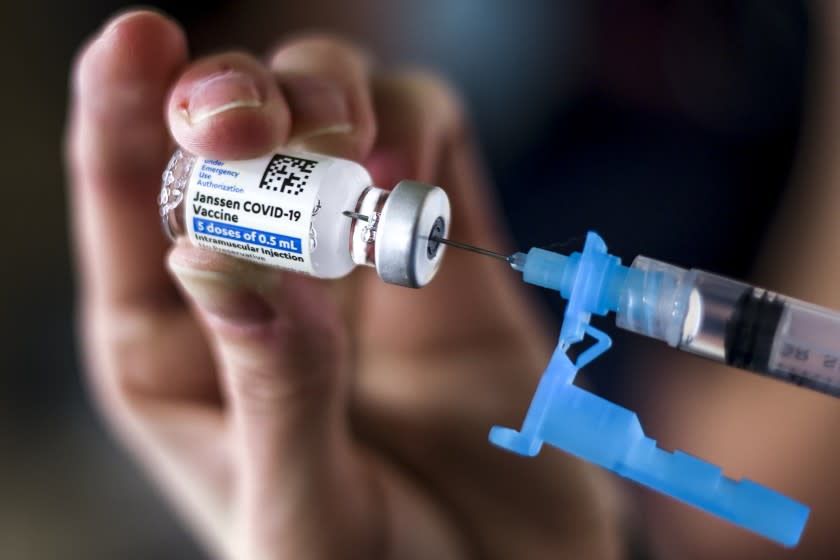Letters to the Editor: Don't freak out over the Johnson & Johnson vaccine pause

To the editor: The finding that six women developed blood clots in the brain's draining veins after they received the Johnson & Johnson COVID-19 vaccine is of concern. Yet the full context of federal agencies' recommended pausing of the use of this vaccine requires additional information.
The natural occurrence of such clots is approximately 13 people per million. More than 7 million Johnson & Johnson vaccines have been administered. Assuming half went into women's arms, the math suggests we might see 45 with blood clots.
Young women are a fraction of those who got the vaccine, but still, six out of 7 million may not be statistically different from background occurrence. Hormones and birth control medication are co-variables.
Before we jump to conclusions of causation, let the U.S. Food and Drug Administration do its work.
Dr. Michael Brant-Zawadzki, Newport Beach
..
To the editor: While it is important for the public to be aware that six women who received the Johnson & Johnson shot developed this dangerous clotting condition, I would suggest expanding on why six cases out of more than 7 million doses administered are not of grave concern.
As a public health student at UC Berkeley, I recognize how powerful media can influence public opinion. By comparing the prevalence of blood clots among vaccine recipients to that of people who take birth control pills or smoke, for example, the issue may not be so frightening.
Stephanie Rosa, Los Angeles
This story originally appeared in Los Angeles Times.

